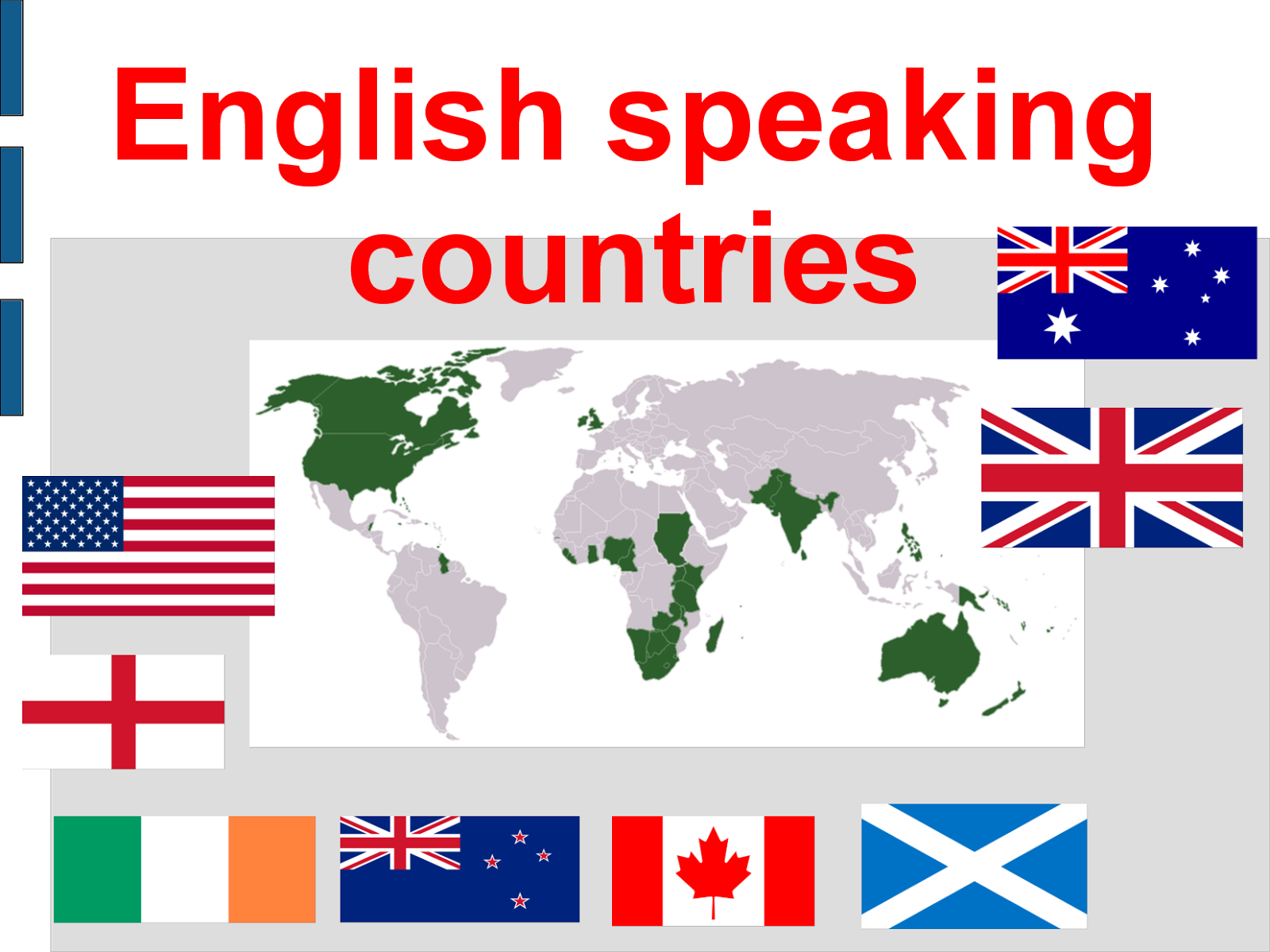Exploring The World: Countries That Speak English
The English language serves as a global bridge connecting people from diverse backgrounds, cultures, and nations. As one of the most widely spoken languages in the world, English has established itself as an essential tool for communication, business, and education. From bustling cities to remote villages, the influence of English can be felt across continents. This article delves into the various countries where English is either the primary language or holds significant status, exploring how it shapes their society and culture.
In addition to the countries where English is an official language, many nations have adopted it as a second language, contributing to its global prevalence. Countries that speak English not only showcase linguistic diversity but also reflect the historical ties and cultural exchanges that have occurred over centuries. Understanding the nuances of these nations can provide valuable insights into their unique identities and traditions.
As we embark on this journey to discover the countries that speak English, we will answer key questions, explore their historical contexts, and analyze the impact of English on their societies. Join us as we navigate through the rich tapestry of the English-speaking world, revealing the connections and distinctions that make each country special.
Which countries have English as an official language?
Many countries have adopted English as an official language, either due to colonial history or because of its significance in international relations. Some notable examples include:
- United States
- United Kingdom
- Canada
- Australia
- New Zealand
- South Africa
- Ireland
- Jamaica
- Barbados
- Singapore
What are the top countries where English is widely spoken?
In addition to the countries with English as an official language, several others have a significant number of English speakers due to historical ties, trade, and globalization. The following countries have a large English-speaking population:
- India
- Nigeria
- Philippines
- Pakistan
- Bangladesh
- Kenya
How does English influence education in different countries?
In many countries, English has become the medium of instruction at various educational levels. This has led to an increased demand for English teachers and language courses. Countries such as:
- China
- Germany
- Brazil
- Russia
have recognized the importance of English proficiency for participating in the global economy, leading to significant investments in English language education.
Is English the only language spoken in these countries?
No, while English may be an official language in many countries, it often coexists with indigenous languages and dialects. For example:
- In India, there are over 100 languages spoken, with Hindi and regional languages being predominant.
- In South Africa, 11 official languages exist, including Zulu, Xhosa, and Afrikaans.
- Canada recognizes both English and French as official languages.
This multilingualism enriches the cultural landscape of these nations and highlights the significance of preserving local languages alongside English.
What role does English play in business and communication?
English serves as the lingua franca in global business, making it a vital skill for professionals in various industries. Countries that speak English benefit from enhanced trade relationships, as English-speaking countries often find it easier to collaborate and communicate. Some key benefits include:
- Easier access to international markets
- Improved networking opportunities
- Enhanced competitiveness in the global economy
How does English shape culture and media in English-speaking countries?
The prevalence of English has a profound impact on culture, art, and media. In countries that speak English, the language dominates various forms of entertainment, including:
- Film and television
- Music
- Literature
- Online content
This cultural influence extends beyond borders, as English-language media reaches audiences worldwide, shaping perceptions and trends.
What challenges do non-native English speakers face?
While English opens doors to opportunities, non-native speakers often encounter challenges in mastering the language. Some common difficulties include:
- Pronunciation and accent variations
- Understanding idiomatic expressions
- Grammatical complexities
These challenges can hinder effective communication and lead to misunderstandings, highlighting the need for comprehensive language education and support.
What is the future of English-speaking countries?
As globalization continues to shape the world, the importance of English is likely to grow. Emerging economies and technological advancements will further intertwine English with various cultures and industries. Countries that speak English will need to adapt to changing demographics and language dynamics to maintain their position in the global landscape.
In conclusion, the countries that speak English are characterized by their rich histories, diverse cultures, and interconnectedness. While English serves as a common language, each nation brings its own unique flavor to the linguistic tapestry, creating a vibrant and dynamic global community.
A Deep Dive Into The Life And Achievements Of Amy Baier
Unveiling The Wealth Of Daniil Medvedev: Medvedev Net Worth 2022
Exploring The Nationality Of Steven Seagal: A Deep Dive


